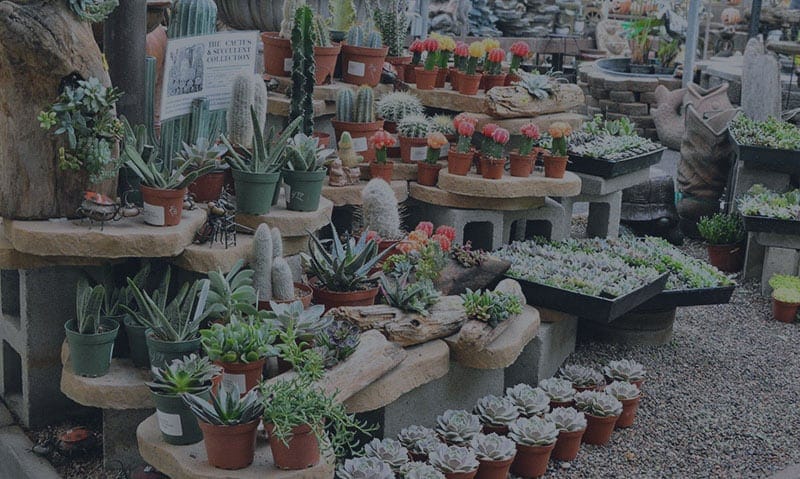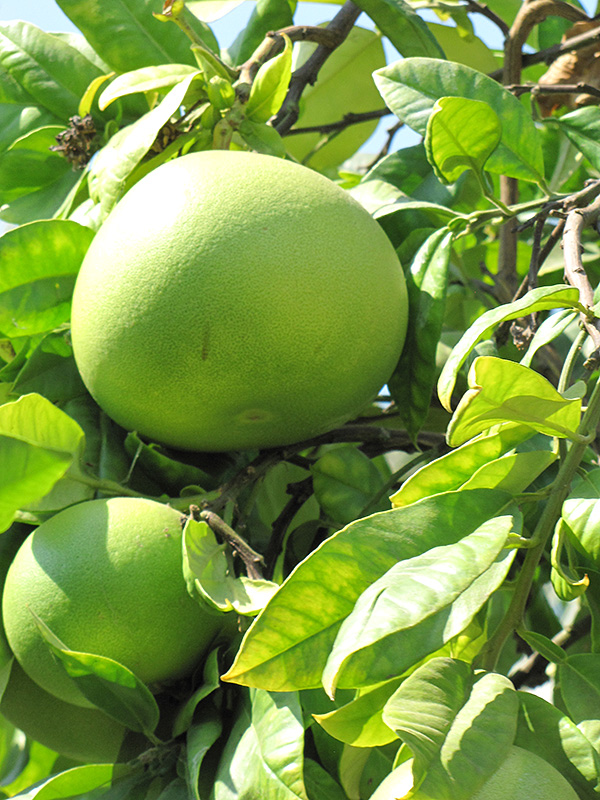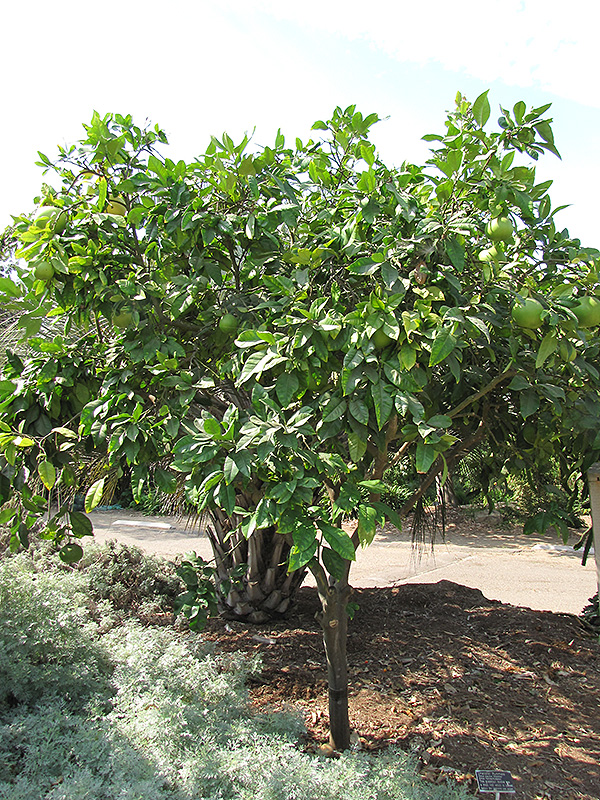Height: 20 feet
Spread: 15 feet
Sunlight:
![]()
Hardiness Zone: 8b
Other Names: Pomelo, Shaddock, Chinese Grapefruit
Description:
Attractive, dark green foliage on pendulous branches; showy, fragrant white flowers up to 4 times a year, followed by huge, pear shaped fruits that may be present year round; protect from frost; a great landscape accent or screen
Edible Qualities
Chandler Pummelo is a small tree that is commonly grown for its edible qualities. It produces enormous yellow round fruit with a pink blush and pink flesh which are typically harvested when mature. The fruits have a sweet taste and a juicy texture.
The fruit are most often used in the following ways:
- Fresh Eating
- Juice-Making
Features & Attributes
Chandler Pummelo features showy clusters of fragrant white star-shaped flowers with buttery yellow eyes at the ends of the branches from early spring to late winter. It has attractive dark green evergreen foliage. The glossy oval leaves are highly ornamental and remain dark green throughout the winter. It features an abundance of magnificent yellow berries with pink blush from early spring to late winter. The fruit can be messy if allowed to drop on the lawn or walkways, and may require occasional clean-up.
This is a multi-stemmed evergreen tree with an upright spreading habit of growth. Its average texture blends into the landscape, but can be balanced by one or two finer or coarser trees or shrubs for an effective composition. This is a relatively low maintenance plant, and is best pruned in late winter once the threat of extreme cold has passed. It is a good choice for attracting birds, bees and butterflies to your yard. It has no significant negative characteristics.
Aside from its primary use as an edible, Chandler Pummelo is sutiable for the following landscape applications;
- Accent
- Hedges/Screening
- Orchard/Edible Landscaping
- Container Planting
Planting & Growing
Chandler Pummelo will grow to be about 20 feet tall at maturity, with a spread of 15 feet. It has a low canopy with a typical clearance of 2 feet from the ground, and is suitable for planting under power lines. It grows at a slow rate, and under ideal conditions can be expected to live for 50 years or more. This is a self-pollinating variety, so it doesn't require a second plant nearby to set fruit.
This tree is typically grown in a designated area of the yard because of its mature size and spread. It should only be grown in full sunlight. It does best in average to evenly moist conditions, but will not tolerate standing water. It may require supplemental watering during periods of drought or extended heat. It is not particular as to soil pH, but grows best in sandy soils. It is somewhat tolerant of urban pollution, and will benefit from being planted in a relatively sheltered location. This is a selected variety of a species not originally from North America.
Chandler Pummelo is a good choice for the edible garden, but it is also well-suited for use in outdoor pots and containers. Its large size and upright habit of growth lend it for use as a solitary accent, or in a composition surrounded by smaller plants around the base and those that spill over the edges. It is even sizeable enough that it can be grown alone in a suitable container. Note that when grown in a container, it may not perform exactly as indicated on the tag - this is to be expected. Also note that when growing plants in outdoor containers and baskets, they may require more frequent waterings than they would in the yard or garden.



